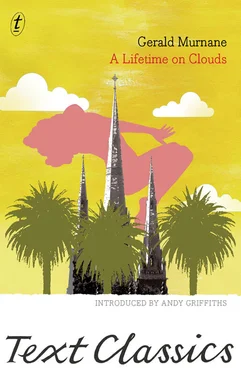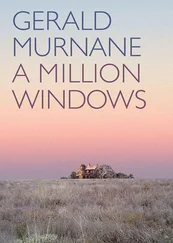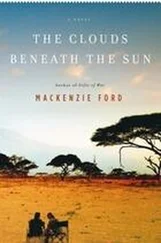Gerald Murnane - A Lifetime on Clouds
Здесь есть возможность читать онлайн «Gerald Murnane - A Lifetime on Clouds» весь текст электронной книги совершенно бесплатно (целиком полную версию без сокращений). В некоторых случаях можно слушать аудио, скачать через торрент в формате fb2 и присутствует краткое содержание. Год выпуска: 2013, Издательство: Text Classics, Жанр: Современная проза, на английском языке. Описание произведения, (предисловие) а так же отзывы посетителей доступны на портале библиотеки ЛибКат.
- Название:A Lifetime on Clouds
- Автор:
- Издательство:Text Classics
- Жанр:
- Год:2013
- ISBN:нет данных
- Рейтинг книги:3.5 / 5. Голосов: 2
-
Избранное:Добавить в избранное
- Отзывы:
-
Ваша оценка:
- 80
- 1
- 2
- 3
- 4
- 5
A Lifetime on Clouds: краткое содержание, описание и аннотация
Предлагаем к чтению аннотацию, описание, краткое содержание или предисловие (зависит от того, что написал сам автор книги «A Lifetime on Clouds»). Если вы не нашли необходимую информацию о книге — напишите в комментариях, мы постараемся отыскать её.
Earnest and isolated, tormented by his hormones and his religious devotion, Adrian dreams of elaborate orgies with American film stars, and of marrying his sweetheart and fathering eleven children by her. He even dreams a history of the world as a chronicle of sexual frustration.
A Lifetime on Clouds — читать онлайн бесплатно полную книгу (весь текст) целиком
Ниже представлен текст книги, разбитый по страницам. Система сохранения места последней прочитанной страницы, позволяет с удобством читать онлайн бесплатно книгу «A Lifetime on Clouds», без необходимости каждый раз заново искать на чём Вы остановились. Поставьте закладку, и сможете в любой момент перейти на страницу, на которой закончили чтение.
Интервал:
Закладка:
But Sherd had come to the Catskills to save himself from being bored to death. He was in no mood to be trifled with. He ran after them. As they ran and stumbled ahead of him he had glimpses of their pink thighs and white undies that made him crazy with desire.
He caught the three of them in a meadow where the grass was waist-high and thick with wildflowers. He behaved like the strong silent type. He stripped all three of them. Then he flung himself on the woman of his choice and took his pleasure roughly and without a word of thanks. Afterwards he lay where he was and watched the meadows in the Catskills turning slowly from green to grey.
Mr Sherd came in from the backyard and said he’d call it a day because the sand was blowing all over him. Then Adrian’s brother came inside and asked Adrian to play miniature cricket on the path and guess which way his spinners would turn. Adrian agreed to play for ten minutes and no more.
He stood at one end of the path while his brother bowled underarm spinners with a tennis-ball. When his ten minutes of cricket were over he sat down and listened.
The Hungarians were still singing in their bungalow. They were starting again on their favourite song. Adrian guessed it was about far-off mountains and forests. He tried to memorise the tune. They started off shouting it, but something stopped them when they reached the chorus. Adrian ran over and pressed his ear against a hole in the fence. He could hear the separate voices of each man and woman trying to pick up the song again. They were making noises like sobs, as though they couldn’t sing for crying.
At school next morning O’Mullane could hardly wait to tell his friends about his adventure on the Sunday afternoon. He said, ‘I was watching the tennis on the courts near the racecourse and having dog-fights on my bike with Laurie D’Arcy when I saw one of the strappers from Neville Byrne’s stables — the one they call Macka — standing behind the pine trees smoushing this tart. She had red hair. I kept my eye on them and I saw Macka trying to get her into one of those old sheds behind the six-furlongs barrier. Well, he got her there at last and I said to D’Arcy we’d better be in this.
‘So we sneaked up and peeped into the shed. Macka had her in a corner leaning back over a rail. He was still smoushing her and getting a handful at the same time under her jumper.’
Adrian said, ‘Was she putting up a fight against him?’
O’Mullane said, ‘Search me. Old Macka put a half-Nelson on her. He’s a tough little bastard. She could have stopped him easily enough if she’d really tried I suppose. She kept saying “Not here, Bernie! Not here, Bernie!” Anyway she got away from him in the end and ran down a little hill into that long grass near the big iron fence. But Macka caught up with her and pushed her over or she dragged him down or they both fell over but anyway they ended up on top of each other and the last thing we saw was old Macka going for all he was worth.’
Adrian said, ‘You mean he was doing her? Out there in the grass beside the racecourse?’
O’Mullane said, ‘What do you reckon? But listen to the end of the story. I was sure I’d seen the tart somewhere before and Laurie D’Arcy said the same. After tea that night D’Arcy came round to my place and said he could show her to me right then. So he took me over to the Yarram Road shops and there she was serving in the milk bar with an apron on over the same clothes she was wearing with Macka. She said, “Yes, boys. What’ll you have?” I said half out loud, “The same as Macka got,” and I reckon she almost heard me.’
For the rest of the day Adrian felt sorry for himself for having to spend his Sunday lying on his bed dreaming of the Catskills while O’Mullane was having a real adventure at Caulfield Racecourse.
That afternoon he left his train at Caulfield and walked across the racecourse to the paddock that O’Mullane had described. He walked quickly across it, looking for a place where the grass was flattened, but there was nothing to tell him where the strapper and the girl had been. He stood where the grass was tallest and looked all round. The place was really only a large yard. It was not even private — a footpath ran close by, and one end of the yard was the wire fence of the public tennis courts.
Adrian hurried out of the racecourse and down to the little shopping centre in Yarram Road. He went into the milk bar. A young woman with red hair came out through the curtained doorway and said, ‘Yes please?’ He looked down to avoid her eyes and asked for two packets of P.K. chewing gum. He stared at her furtively while she served him. She was nothing like a film star but she was pretty in her own way. What surprised him most was how ordinary she looked for a girl in a story. He could see the pores in her cheeks and the freckles on the backs of her hands. And when she handed him his change and he stared at her apron, he saw the vague shape of her breasts rise and fall as she breathed.
He got out of the shop as fast as he could. The story of Macka and the girl was preposterous. He could not believe that on an ordinary dull Sunday afternoon, while he was lying on his bed listening to the wind and the rowdy New Australians next door, a girl with freckles on her wrists and no make-up on her face walked out of her sleepy milk bar and rolled round in the grass on Caulfield Racecourse with some strapper.
O’Mullane must have made up the whole story — perhaps because he was bored too. And it was a pretty poor story compared with what happened in the Catskills.
When he was younger, Adrian Sherd used to wish he had been born the eldest son of an English country gentleman in the eighteenth or nineteenth century and gone to one of the great public schools.
At school he would have read the classics in his private study and played cricket or rugger every afternoon. In his holidays he would have ridden across the broad acres he was going to inherit from his father. The tenants would have tipped their caps to the young master and told him where to find birds’ nests and badgers’ sets.
But after he had gone to St Carthage’s College and learned from Cornthwaite and his friends what women were for, he realised there was something missing from the life of the young English gentleman.
When the son of the manor visited his neighbours, he could never meet the daughter of the house alone. Her nanny or governess or music teacher was always with her. The young fellow stood beside the harpsichord and turned the pages of her music, but the neck of her dress was too high for him to see anything.
Sometimes in his own house he followed the maid into the pantry to look up under her dress when she climbed to the highest shelf. But he always heard a discreet cough behind him and turned round to see the butler looking at him severely.
On his rides across his father’s estates he saw plenty of girls — the daughters of yeomen and labourers and gamekeepers. But the English climate was so bad that they were always rugged up in spencers and mufflers. He wasted a lot of time dreaming of the warm weather when he might surprise a young woman bathing in a stream after a hard day’s work in the harvest. And he realised why so many English poets praised the springtime.
At school it was painful to read stories of the pagan Greeks and Romans and their sunny Mediterranean lands while snow covered the quadrangle, and the only female in the building was the elderly Matron with her mustard plasters and camphorated oil. He was reduced to dreaming of a day when one of his chums would receive a party of visitors. The chum might invite him to take his sister’s arm and do a turn of the garden path.
In the nineteenth century, when things were worst for young Englishmen (the women with iron hoops in their clothes and long leather boots and collars up to their chins) they heard about a land where people dressed less formally because it was summer for six months of the year. It was no wonder that so many of them flocked to Australia.
Читать дальшеИнтервал:
Закладка:
Похожие книги на «A Lifetime on Clouds»
Представляем Вашему вниманию похожие книги на «A Lifetime on Clouds» списком для выбора. Мы отобрали схожую по названию и смыслу литературу в надежде предоставить читателям больше вариантов отыскать новые, интересные, ещё непрочитанные произведения.
Обсуждение, отзывы о книге «A Lifetime on Clouds» и просто собственные мнения читателей. Оставьте ваши комментарии, напишите, что Вы думаете о произведении, его смысле или главных героях. Укажите что конкретно понравилось, а что нет, и почему Вы так считаете.












